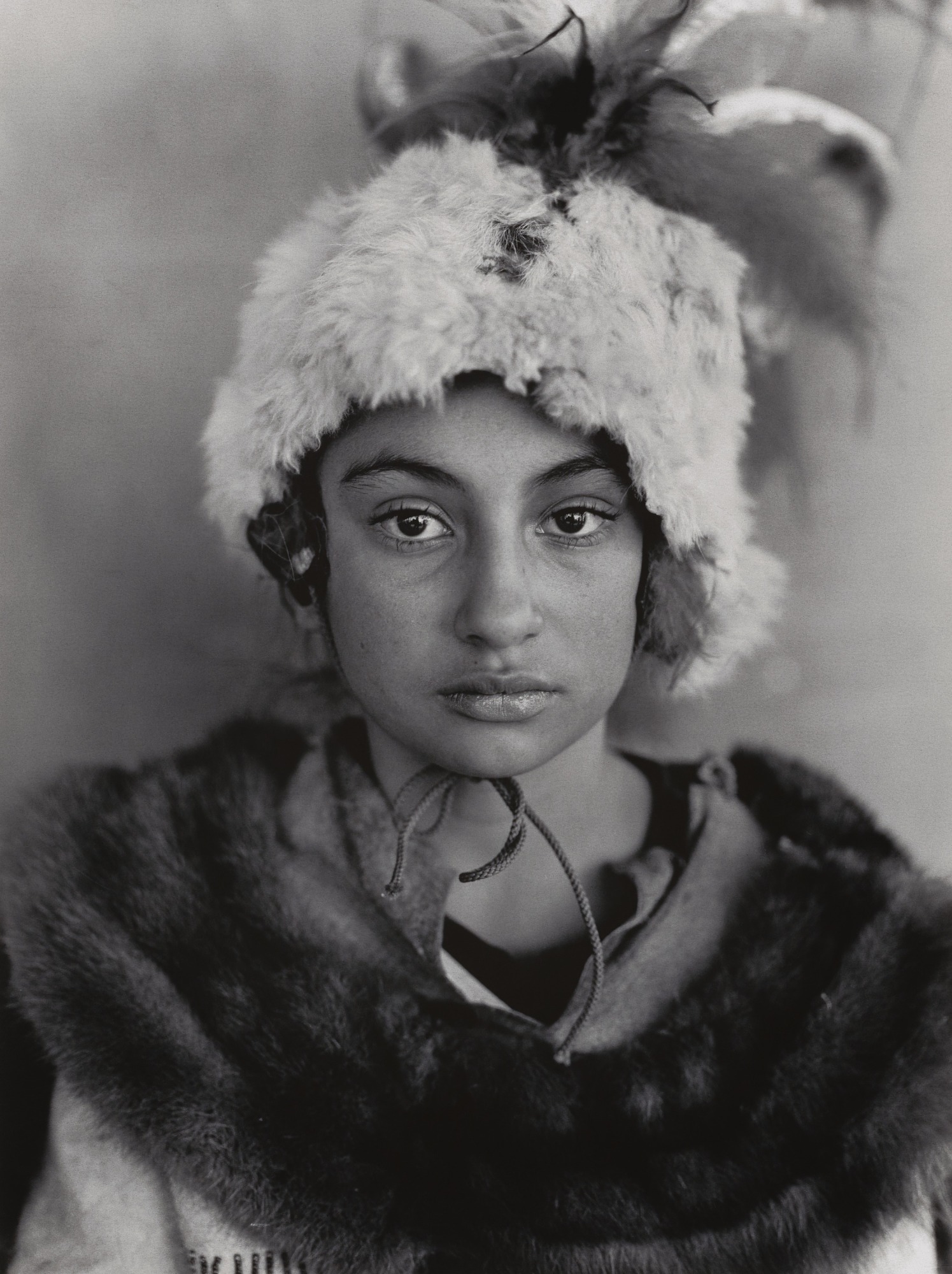Smithsonian To Host the Virtual Symposium “The Other Slavery” Sept. 24–27

Miguel A. Gandert, Linda Elena, Talpa, NM, 1995, gelatin silver print, Smithsonian American Art Museum, purchase through the Smithsonian Latino Initiatives Pool, administered by the Smithsonian Latino Center, 2016.20.6, © 1995, Miguel Gandert
Stories of enslaved Indigenous peoples have often been absent from the historical narrative. From Sept. 24–27, the Smithsonian will host the virtual symposium “The Other Slavery: Histories of Indian Bondage from New Spain to the Southwestern United States,” which will explore the hidden stories of enslaved Indigenous peoples, focusing on the legacy of Spanish colonization in the Americas and Asia and its impact on what is now the southwestern United States. This program seeks to give a comprehensive first voice to these hushed stories and living legacies.
Experts from a range of academic disciplines, including Indigenous studies, anthropology and history, will examine little-known stories of coerced labor and peonage and the long-term impact of Indian slavery. Panelists will discuss the legacies of Native American enslavement with Indigenous community leaders and cultural workers. The event will explore the different forms and complexity of human bondage that resulted in hybrid cultures, tangled economic practices and intricate social relationships between the Spanish and Indigenous communities.
A think-piece by Andrés Reséndez accompanies the symposium and gives additional context. It provides an overview of the complexities of Indian slavery from its origins to the present day. Reséndez is professor of history at the University of California, Davis, and the author of several books, including 2016’s The Other Slavery: The Uncovered Story of Indian Enslavement in America, which was a finalist for the 2016 National Book Award and the winner of the 2017 Bancroft Prize from Columbia University.
The symposium is free, and all sessions and performances will be available on demand beginning Sept. 24 at 12:01 a.m. EDT, through 11:59 p.m. EDT, Sept. 27, on the National Museum of the American Indian’s website.
The symposium is presented by the Smithsonian Latino Center, the National Museum of the American Indian and the National Museum of African American History and Culture in association with the Smithsonian’s initiative, “Our Shared Future: Reckoning with Our Racial Past.”
The Other Slavery symposium is made possible, in part, through support from the One Smithsonian Symposia Fund through the Smithsonian’s Office of the Under Secretary for Museums and Culture. Bank of America is the founding partner of “Our Shared Future: Reckoning with Our Racial Past.”
Program
- Welcome and Opening Remarks
Lonnie G. Bunch III, Secretary, Smithsonian
- Session One: “Global and National Contexts of Indian Bondage”
Philip J. Deloria, Tiya Miles, Andrés Reséndez, Scott Manning Stevens
- Session Two: “Slavery in the Spanish Empire: The Philippines and the Southwest Borderlands”
James F. Brooks, Ramón A. Gutiérrez, Tatiana Seijas, Gabrielle Tayac
- Session Three: “Living Cultures: Genízaro Traditions Today”
Chavela Trujillo, Delilah Trujillo, Dexter Trujillo, Virgil Trujillo, Patricia Trujillo
- Performance: “Living Cultures: Genízaro Traditions Today”
Las Inditas del Pueblo de Abiquiú, Genízaro, community members of Abiquiú, New Mexico
- Symposium Perspectives
Kevin Gover, Under Secretary for Museums and Culture, Smithsonian
- Cultural Representations of Indian Slavery
Eduardo Díaz, director, Smithsonian Latino Center; interim director, National Museum of the American Latino
- Session Four: “Indo-Hispanos: Contemporary Indigenous and Hispanic Intersections”
Ana X. Gutiérrez Sisneros, Isabel War Trujillo, Patricia Trujillo, Simon Romero
- Session Five: “Kinship and Genocide in California”
Benjamin Madley, Erika Pérez, Christina Maria Salazar, Helen Louise Salazar, Anthea M. Hartig
- Session Six: “Legacies of Indian Bondage”
Vanielle Blackhorse, Mary Elliott, Brandie Macdonald, Royleen J. Ross, The Honorable Brian D. Vallo, Michelle Delaney
- Closing Reflections
Mary Elliott, curator of American Slavery, National Museum of African American History and Culture
- Future Conversations
Tribal Chairman Greg Sarris, Federated Indians of Graton Rancheria
Full biographies for the speakers, panelists and presenters are available on the symposium’s website.
# # #
SI-276-2021
Becky Haberacker
202-633-5183
haberackerb@si.edu
Lisa Austin
212-514-3826
